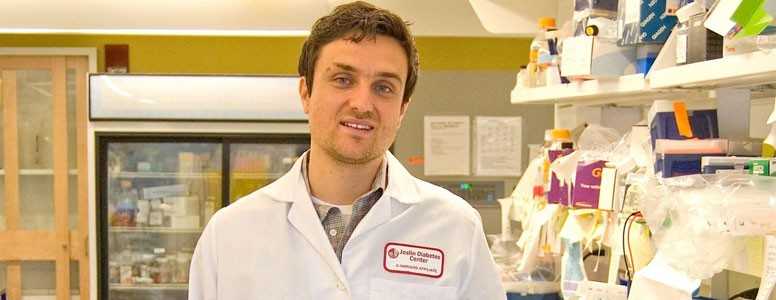The American Diabetes Association (ADA) today announced that the Pathway to Stop Diabetes program grant of $1.625 million will go towards funding a researcher from the Joslin Diabetes Centre studying gut bacteria in type 1 diabetes.
The recipient of the award, Aleksandar Kostic, is a post-doctoral assistant researcher at the Boston-based Joslin Diabetes Centre. He and his own lab research team study the immune regulatory functions of gut bacteria forming the microbiome.
Kostic has been trying to understand what gut microbiome signature traits are associated with a healthy immune response and which ones promote the inflammatory state that may contribute to type 1 diabetes and other autoimmune diseases.
It is thought that gut inflammation caused by unfavourable alterations of the microbiome impacts intestinal permeability. Some studies have shown that increased gut permeability could be involved in stages of the autoimmune process leading to type 1 diabetes.
Kostic is looking into how the gut microbiome milieu can be altered to bring back the immune system to a state of homeostasis (balance). To do this, he is using computational simulations, microbial genomic analysis, in-vitro techniques and mouse models.
In the past, Kostic helped identify certain gut bacteria as biomarkers of autoimmunity in children presenting risks of developing type 1 diabetes. He did so as part of the pioneering DIABIMMUNE study.
DIABIMMUNE was a large EU-funded project that has set out to analyse microbiome samples among 2,000 Finnish and Russian children between the age of three and five years old and 300 babies up to three months old.
Kostic, along with other scientists, analysed the data from the three-year period that the project lasted for and discovered that children with very specific populations of gut bacteria went on to develop type 1 diabetes.
The Kostic lab is now focusing on finding out how these are acquired early in life and through which mechanisms they bring about autoimmune reactions characteristic of type 1 diabetes.
It is now well established that the first gut bacteria print appears to be critical in children’s early years and several leads as to what could cause the alterations have been put forward in previous research.
They include a lack of exposure to bacteria in food and the environment, the absence of the mother’s microbial print with ceasareans, antibiotics, and other less documented causative links.
Kostic’s next experiment will put it to the test, by introducing germ-free mice – that have not been in contact with microbes – to different strains of mouse gut bacteria to see if they increase or decrease inflammatory responses. Later o, human gut bacteria will also be tested.
If fruitful, Kostic is thinking about extrapolating these methods to study the involvement of the microbiome in type 2 diabetes and obesity.
Image credit: Joslin Diabetes Centre
What's new on the forum? ⭐️
Get our free newsletters
Stay up to date with the latest news, research and breakthroughs.





